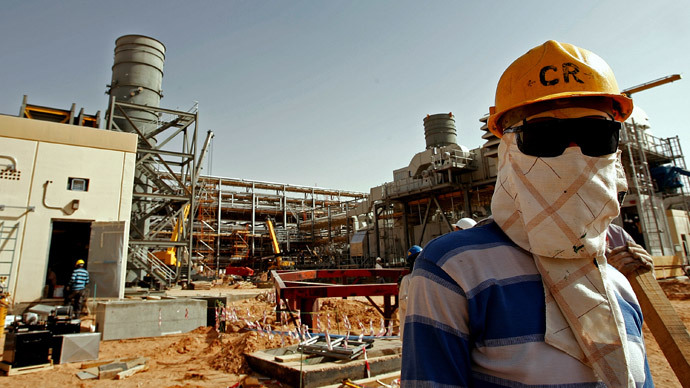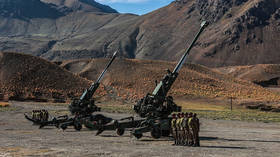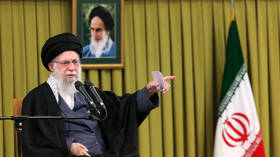‘Saudi policy of downplaying oil prices to backfire on them’

Saudi Arabia wants to use lower oil prices to pressure Russia to change its stance on Syria, to antagonize Iran, and to force US shale gas out of the market, roving correspondent for the Asia Times Pepe Escobar told RT.
RT:Russia's economy is surely being hit by the falling oil prices. But what about other oil producers like the OPEC states?
Pepe Escobar: A lot of people are being hurt. There are more or less 20 nations that need oil at least for 50 percent of their budget. Among these nations we’ll find especially a mix of African countries and Persian Gulf countries, that includes Saudi Arabia and Iraq as well, Venezuela and Ecuador. So it’s very complicated, it’s not only to hurt Russia...
RT:Saudi Arabia is one of the OPEC members and it is supposed to collaborate its oil price policy with other members. Why it is acting like this?
PE: OPEC is not a moralistic organization. There has been a lot of speculation about what Saudi Arabia has been doing. In fact, their strategy is still faulty – they want lower oil prices to pressure Russia vis-à-vis Syria, change their stance vis-à-vis Damascus and they want to more or less price shale gas from the US out of the market, and also pressure Iran vis-à-vis what’s going on in the Middle East, the famous Saudi-Iranian antagonism. This is not going to work in the long run because even Saudi Arabia will be in trouble if we have a barrel of oil like it was projected for the first quarter of 2015 between $70 and $80, now it’s a round $86-87. So they will be in trouble as well, their strategy in the long run is going to backfire.

RT:So, how long are these major oil exporting countries going to follow this strategy? When will they think of their own economic interests?
PE: When we look at the breakeven for most of these countries in terms of their state budget - how much they need a barrel of oil to cost if they can more or less even their expenses? When we look at the latest table - which is a composite of indexes from the Economist, Wall Street Journal, Bloomberg, Reuters - Venezuela and Ecuador need oil at $120 a barrel, they are going to be in a deep trouble. Iraq, for instance, needs around $106-116 – they are in trouble. The problem with Iran is that we don’t have very exact figures. According to these indicators, Iran will need a barrel of oil between $130 and $140. That’s too much because oil is less than 20 percent of Iran’s revenues, so it’s not essential for them. Gas is much more important. In terms of Russia, we know how Russia may [be] hurt because for the State Budget of Russia for 2015 it’s around $100 a barrel. So if we have next year, according to the best projecting so far, between $70 and $80 and maybe even going down to $65-70 in the next few years, all of these countries are going to suffer. But the market is very volatile. In one year from now we could be talking about a completely different situation if we have more demands, especially from China, from the US, from Europe, supposing there is some sort of economic realignment in Europe. So this could change not just in a matter of not only days and weeks or years but very fast.
RT:Why aren't the OPEC-states reducing the production volumes, like they normally do when prices drop?
PE: There are a lot of back-door consultations among OPEC members at the moment. Sooner or later we can expect less oil in the market, so the prices will go up. Especially, I would say from Venezuela, Ecuador… Iran - they need the revenue, so at the moment they are just starting the market flows. Obviously they have very good customers in Asia, even if they are buying less like China, they still buy Iranian oil. We have to see the US point of view, in fact, because the US doesn’t want very low oil prices to price their shale gas exploration out of the market. So there are going to be counter-moves by many OPEC and non-OPEC players as well.
The statements, views and opinions expressed in this column are solely those of the author and do not necessarily represent those of RT.
The statements, views and opinions expressed in this column are solely those of the author and do not necessarily represent those of RT.













